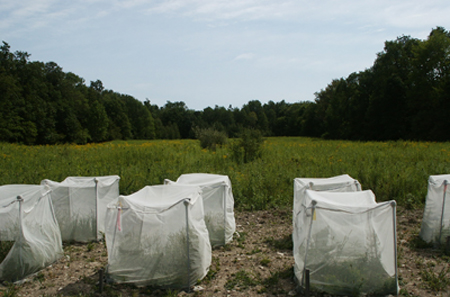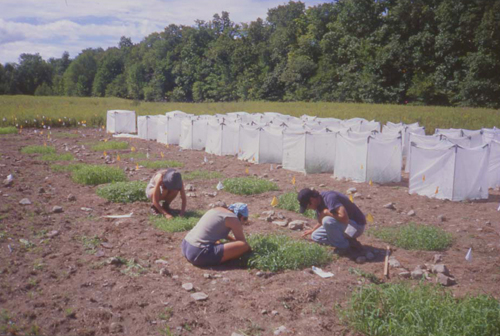Research Objectives
- Experimentally test the dilution effect hypothesis that greater host species richness can reduce spread of generalist pathogens.
- Mechanistically examine the conditions for the dilution effect to operate, particularly the roles of host species composition, pathogen spillover, and apparent competition.
- Compare the effects of host community richness and composition on the spread of vector-transmitted and directly transmitted pathogens.
Study Species
- Avena fatua (Wild Oats)
- Bromus tectorum (Cheatgrass)
- Digitaria sanguinalis (Hairy Crabgrass)
- Echinochloa crus-galli (Barnyardgrass)
- Lolium multiflorum (Italian Ryegrass)
- Panicum capillare (Witchgrass)
- Setaria lutescens (Pearl Millet)
- Setaria viridis (Green Bristlegrass)
Collaborators
- Sunny Power- Cornell University

An experimental field at Cornell University, with aphid cage mesocosms in the
foreground and successional species including goldenrod in the background.
We are using field and controlled environment experiments at Cornell and at UNC to test the effects of host diversity and species composition on the spread of the insect-transmitted generalist pathogen Barley yellow dwarf virus-PAV (BYDV-PAV). This provides an experimentally tractable model system for the study of potentially general feedbacks between host community structure and pathogen spread. This project was funded by the NSF Ecology program through 2009.
